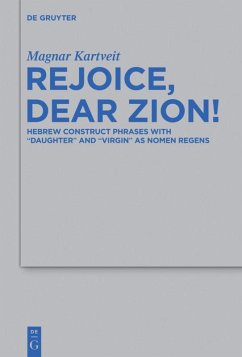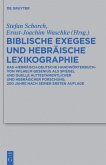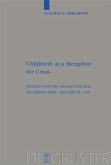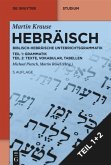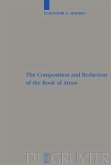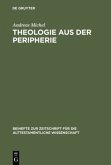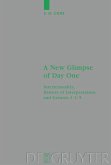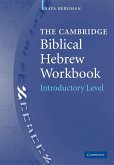The phrase "Daughter of Zion" is in recent Bible translations often rendered "Daughter Zion". The discussion behind this change has continued for decades, but lacks proper linguistic footing. Parlance in grammars, dictionaries, commentaries and textbooks is often confusing.
The present book seeks to remedy this defect by treating all relevant expressions from a linguistic point of view. To do this, it also discusses the understanding of Hebrew construct phrases, and finds that while there is a morphological category of genitive in Akkadian, Ugaritic and Arabic, Hebrew, Aramaic and Syriac do not display it. The use of this term as a syntactical category is unfortunate, and the term should be avoided in Hebrew grammar. Metaphor theory and the use of irony are also tools in the discussion of the phrases.
As a result of the treatment, the author finds that there are some Hebrew construct phrases where nomen regens describes the following nomen rectum, and the description may be metaphorical, in some cases also ironical. This seems to be the case with "Daughter of Zion" and similar phrases. This understanding calls for a revision of the translation of the phrases, and new translations are suggested.
The present book seeks to remedy this defect by treating all relevant expressions from a linguistic point of view. To do this, it also discusses the understanding of Hebrew construct phrases, and finds that while there is a morphological category of genitive in Akkadian, Ugaritic and Arabic, Hebrew, Aramaic and Syriac do not display it. The use of this term as a syntactical category is unfortunate, and the term should be avoided in Hebrew grammar. Metaphor theory and the use of irony are also tools in the discussion of the phrases.
As a result of the treatment, the author finds that there are some Hebrew construct phrases where nomen regens describes the following nomen rectum, and the description may be metaphorical, in some cases also ironical. This seems to be the case with "Daughter of Zion" and similar phrases. This understanding calls for a revision of the translation of the phrases, and new translations are suggested.

